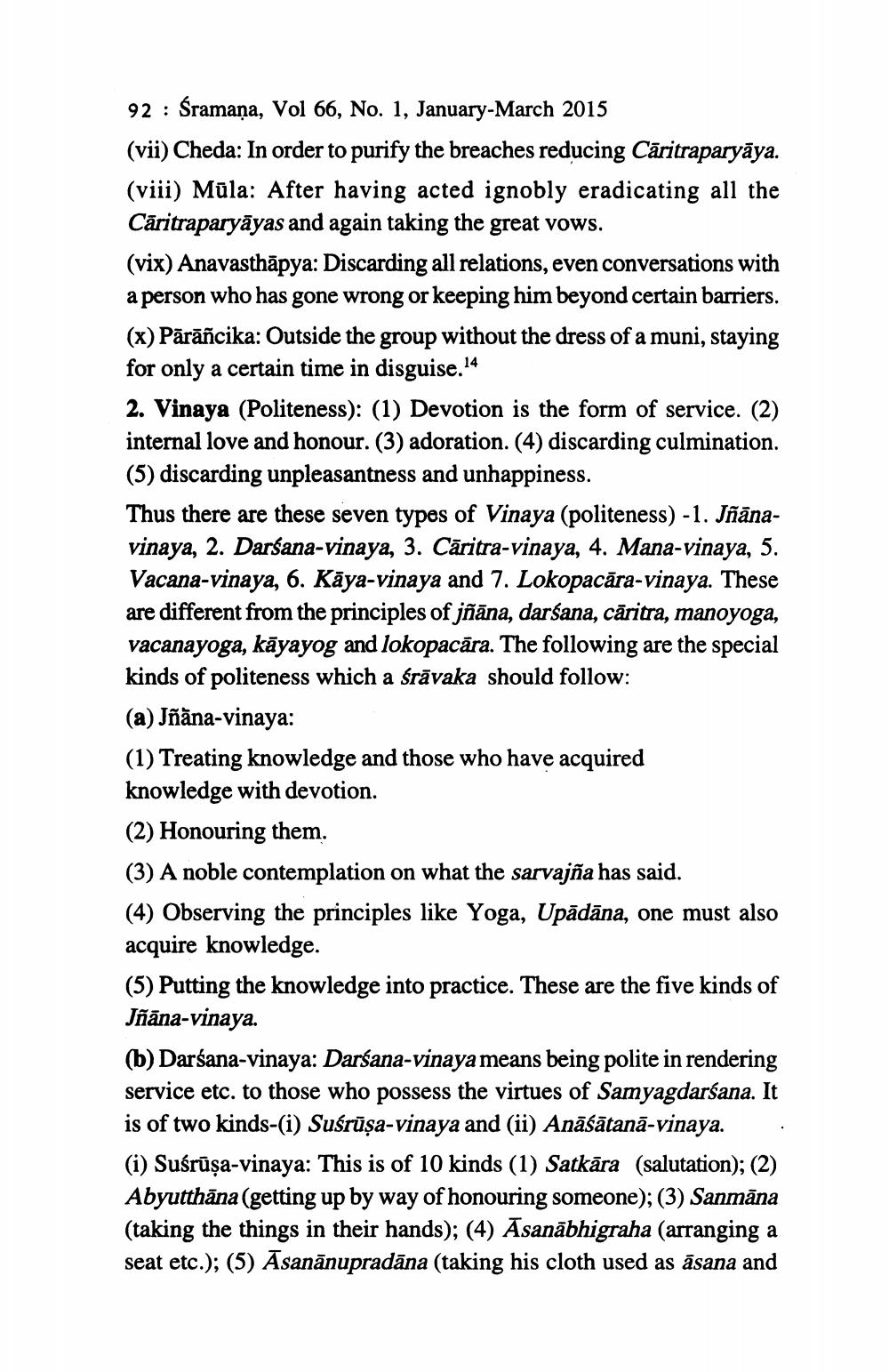________________
92 : Śramaņa, Vol 66, No. 1, January March 2015 (vii) Cheda: In order to purify the breaches reducing Cāritraparyāya. (viii) Müla: After having acted ignobly eradicating all the Cáritraparyāyas and again taking the great vows. (vix) Anavasthāpya: Discarding all relations, even conversations with a person who has gone wrong or keeping him beyond certain barriers. (x) Pārāñcika: Outside the group without the dress of a muni, staying for only a certain time in disguise. 14 2. Vinaya (Politeness): (1) Devotion is the form of service. (2) internal love and honour. (3) adoration. (4) discarding culmination. (5) discarding unpleasantness and unhappiness. Thus there are these seven types of Vinaya (politeness) -1. Jñānavinaya, 2. Darśana-vinaya, 3. Cāritra-vinaya, 4. Mana-vinaya, 5. Vacana-vinaya, 6. Kāya-vinaya and 7. Lokopacāra-vinaya. These are different from the principles of jñāna, darśana, cāritra, manoyoga, vacanayoga, kāyayog and lokopacāra. The following are the special kinds of politeness which a śrāvaka should follow: (a) Jñāna-vinaya: (1) Treating knowledge and those who have acquired knowledge with devotion. (2) Honouring them. (3) A noble contemplation on what the sarvajña has said. (4) Observing the principles like Yoga, Upādāna, one must also acquire knowledge. (5) Putting the knowledge into practice. These are the five kinds of Jñāna-vinaya. (b) Darśana-vinaya: Darśana-vinaya means being polite in rendering service etc. to those who possess the virtues of Samyagdarśana. It is of two kinds-(i) Suśrūșa-vinaya and (ii) Anāśātanā-vinaya. (i) Suśrūșa-vinaya: This is of 10 kinds (1) Satkāra (salutation); (2) Abyutthāna(getting up by way of honouring someone); (3) Sanmāna (taking the things in their hands); (4) Asanābhigraha (arranging a seat etc.); (5) Asanānupradāna (taking his cloth used as asana and




